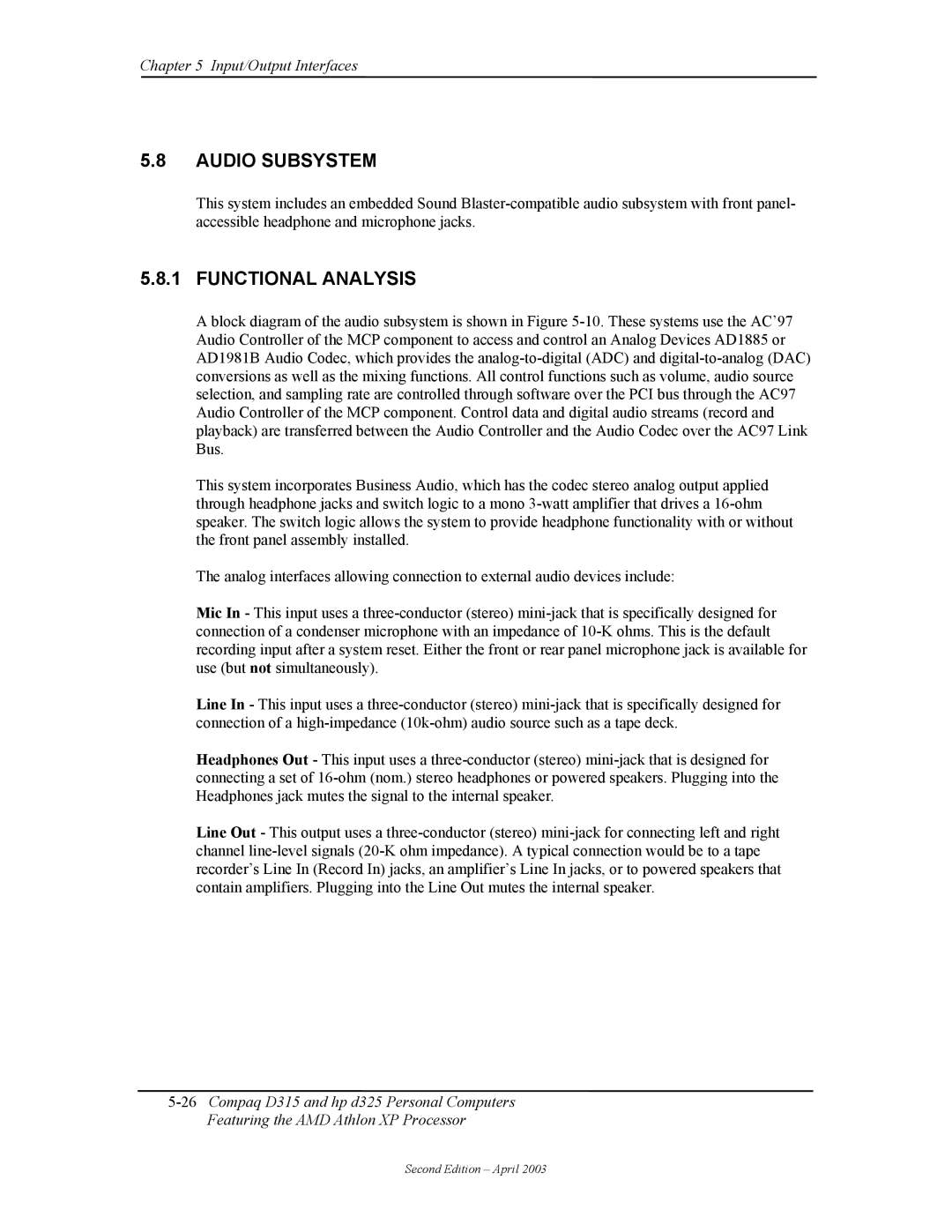
Chapter 5 Input/Output Interfaces
5.8AUDIO SUBSYSTEM
This system includes an embedded Sound
5.8.1 FUNCTIONAL ANALYSIS
A block diagram of the audio subsystem is shown in Figure
This system incorporates Business Audio, which has the codec stereo analog output applied through headphone jacks and switch logic to a mono
The analog interfaces allowing connection to external audio devices include:
Mic In - This input uses a
Line In - This input uses a
Headphones Out - This input uses a
Line Out - This output uses a
Second Edition – April 2003
